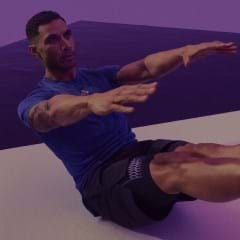Read on and you’ll discover:
• The difference between athletic periodization, tapering and time off
• Signs your body might be in need of a break
• How long it takes for a break in routine to affect your fitness
• Tips for returning to exercise after a break
Dr Jinger Gottschall is an expert in the development of sustainable and effective exercise regimes – and she says it’s definitely okay to take a break from exercise. In fact, she recommends everyone have at least one day off a week, and that you enjoy a break from your regular exercise routine during vacations.
“Spending three or four non-consecutive weeks per year doing less training can be refreshing,” she says. “A break from exercise prevents injury by allowing the working muscles to rebuild and prepare for future training. It also gives you time to relax and refocus, and this can make you appreciate the positive feelings associated with training.”

Using periods of reduced activity to improve performance is something competitive athletes have been doing for decades. And, while most of us are not professional athletes, paying heed to the idea of 'athletic periodization' and 'sports tapering' can pay off.
Classic athletic periodization involves phases of exercise that shift between high volume/low intensity and low volume/high intensity. The aim is to maximize performance without the risk of overtraining.
Sports tapering is something athletes do prior to a competition or event. This short reduction in training load is designed to limit fatigue for the big event while maintaining fitness effects.
The Internet is littered with myriad periodization formulas and tapering specifications. It’s a complex science, and while there has been plenty of research in the area, it seems it’s so highly individualized that there is no one recipe for success.
What is clear, though, is that periods of reduced exercise load and intensity can be advantageous.
However, as one of the critical factors in exercise adherence is consistency, it’s not ideal to regularly take more than one day off per week. This is particularly important for novice exercisers. If you’re new to exercise it’s a good idea to spend the first 10-12 weeks committed to regular exercise in order to develop a routine. Once you have a sound routine under your belt, and you exercise between 4-6 times a week, taking a week off could be good for your mind – and it shouldn’t affect your fitness either.
Do you need a break from exercise?
According to Dr Gottschall, signs that indicate you may need a break from your exercise routine include:
- A high resting heart rate
- A low exercise heart rate
- Inability to fall asleep
- Lack of energy
- Inability to focus
- Negative feelings about exercise
How quickly can your fitness go downhill?
Detraining rates all depend on the individual, but as a general rule you can expect to lose specific fitness skills more swiftly than basic core skills.
Many believe you typically have around two weeks until your aerobic fitness starts to decline. A study of well-trained regular runners (who had been training consistently over a 4-6 month period) shows that for the first ten days of inactivity there is minimal decrease in VO2 max. But from there it goes downhill, as your heart’s ability to efficiently pump blood reduces.
Beginners, and those with a smaller base of fitness, will lose fitness at a faster rate than seasoned exercisers.
How quickly fitness reduces varies from person to person, but you can expect to notice some changes within a fortnight. One study shows that after two weeks of not running, VO2 max decreases by six percent; by 11 weeks it drops as low as 25.7 percent. This is backed up by another study of endurance athletes, showing a 20 percent decrease in VO2 max after four weeks of inactivity.
For a long time we’ve thought strength is less likely to be affected by an exercise holiday, but recent research has called this into question. A Danish study showed you can lose muscle mass within two weeks, and the younger you are, the bigger the impact – the more muscle mass you have, the more you can lose.
How far you are along your fitness journey can also affect how quickly your fitness drops off. Beginners, and those with a smaller base of fitness, will lose fitness at a faster rate than seasoned exercisers, who may lose peak fitness relatively swiftly but then see a slower decline in base fitness.

When we asked Bryce Hastings, Les Mills Head of Research, about the value of ‘exercise holidays’ he said it all depends on the individual, but if you’re hanging out for a holiday, chances are your body could probably do with some rest too.
“Regular everyday exercisers are notorious for not taking breaks from endless exercise,” he explains. “They establish a routine, which is great, and they religiously stick to it … potentially adding to the load when a new fitness class or training innovation comes along. Chances are, their body doesn’t need a fresh new training innovation – it may well need a rest!”
Bryce says the holiday period can be a great time to take a break and then reset your regular exercise routine. But he advises against taking a break from physical activity all together – you could factor in regular walks and even squeeze in the odd workout.
A word of warning …
While a week away from your regular workout schedule will have little detrimental effect on your fitness level, it might not feel that way. You can expect your first workout back to feel tougher than usual, but chances are it’s all in your mind, so don’t be put off! And whatever you do, beware of holiday ‘creep’ – aim to get back into a regular workout regime as soon as your vacation finishes.

What if you don't have a holiday on the horizon?
Even if you’re not planning a vacation, Gottschall says you still need to give your body the break it deserves.
“We rarely talk about the risks of too much exercise, because the majority of people do not do enough. But there’s a fine line between exercise that produces health benefits and exercise that can actually cause health detriments.”
She believes everyone should employ one strict rule: having one full day without planned exercise every week. No question. No short run. No yoga. No express class. You need two sleep cycles without training. Sure, you can still walk your dog or enjoy an evening stroll, but nothing that requires intensity above 65 percent or potential muscle soreness. According to Gottschall you need this full day per week to recover both physically and mentally.








